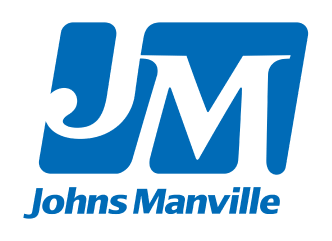
You shouldn’t have to choose between getting care and paying for it. Get the financial support you deserve.
Explore Your OptionsThe Johns Manville asbestos trust fund was established in 1988 with $2.5 billion to compensate claimants. As of late 2024, it holds about $558 million, paying claims at a rate of 5.1%, with actual payouts around $17,500 for mesothelioma.

The Johns Manville Asbestos Trust Fund is a legal trust established in 1988 to compensate people who developed asbestos-related illnesses from exposure to Johns Manville asbestos products. The trust was created as part of Johns Manville’s bankruptcy reorganization and is dedicated solely to resolving current and future asbestos health claims.
Johns Manville Asbestos Trust Updates
Initially, Johns Manville anticipated approximately 100,000 claims, but in reality, it received several hundred thousand. To respond, Johns Manville added another $520 million and revised its claims process.
The actual amount you receive from an asbestos trust fund like John Manville’s depends on several factors, including your specific diagnosis, medical costs and individual circumstances. To qualify, you must provide proof of an asbestos-related diagnosis and demonstrate that Johns Manville was responsible for your exposure. Family members can also file if a loved one has passed away as a result of asbestos exposure. An experienced mesothelioma lawyer can file for you, manage the process and answer all of your questions.
An experienced asbestos attorney can guide you through filing a claim with the Manville Personal Injury Settlement Trust, whether you’ve been diagnosed with mesothelioma or another eligible asbestos-related illness, or have lost a loved one to one of these diseases. Your lawyer will ensure you have the right documentation and that your claim is filed correctly.
If you’re unsure about how to choose the right mesothelioma lawyer, need help filing both asbestos trust fund claims and VA claims or want information about other forms of financial assistance, our Patient Advocates assist you. Our team can connect you with legal help that fits your and your family’s needs, along with free resources. Our team schedules appointments with leading mesothelioma specialists, helps you join patient and caregiver support groups and provides insurance assistance.

You shouldn’t have to choose between getting care and paying for it. Get the financial support you deserve.
Explore Your OptionsBetween its first official complaint in 1929, which settled for $30,000 to $90.5 million in wrongful death verdicts to 11 families, and its involvement in mesothelioma lawsuits, Johns Manville spent millions. The company was also part of some historic asbestos litigation.
After years of legal action, including the U.S. Supreme Court declining to hear an appeal, the Fifth Circuit Court of Appeals’ 1973 ruling in favor of industrial insulation worker Clarence Borel’s widow stood. Johns Manville was one of 11 asbestos companies named in the historic mesothelioma lawsuit. The court stated the core issue was the defendant manufacturers’ failure to warn Borel about the dangers of working with asbestos-containing products.
During WWII, workers at Consolidated Steel Shipyard who developed mesothelioma and other asbestos-related diseases filed lawsuits against Johns Manville over asbestos insulation. Johns Manville claimed it didn’t know asbestos was dangerous in the 1940s. But company records showed they knew the decade before.
Johns Manville began more than 160 years ago and grew into the world’s largest maker of asbestos products. Starting with insulation and later expanding into roofing, siding and flooring, the company used asbestos in dozens of materials sold across homes, schools and industrial worksites.
Asbestos exposure from Johns Manville products caused thousands of cases of mesothelioma, lung cancer and asbestosis. The impact of Johns Manville’s asbestos use continues today. In June 2022, the Environmental Law & Policy Center reported flooding linked to climate change could spread asbestos from a Johns Manville Superfund site in Illinois into neighborhoods near Lake Michigan, increasing risks for nearby residents.
Mining, factory and construction jobs at Johns Manville put thousands of people in direct contact with asbestos. Shipping raw asbestos across the U.S. and abroad also spread exposure beyond company worksites.
Many workers ended their shifts covered in asbestos dust, which clung to their clothes, boots and gear. This put their families at risk of secondary asbestos exposure that could later lead to mesothelioma.
Jobs With Higher Risk of Asbestos Exposure
Johns Manville officials knew the dangers decades before warning workers. In 1933, Dr. Anthony Lanza, medical director at Metropolitan Life, informed company officials about asbestos health risks but advised against informing employees. In 1949, Dr. Kenneth Smith reported chest X-ray signs of asbestosis in 7 workers.
Rather than share the results, Johns Manville’s president chose to keep them secret. Later, reports showed 1 in 5 workers had asbestosis, yet Metropolitan Life blocked government inspections.
Johns Manville made asbestos products for insulation, roofing and siding that were widely used in homes, schools and industrial settings. These materials exposed workers and the public to dangerous asbestos fibers.
Top Johns Manville Asbestos Products
These products played a major role in construction throughout much of the 20th century. Because asbestos fibers were released during installation, repair or removal, they left workers and nearby communities at risk of long-term health effects.
Recommended ReadingStay up-to-date on treatment, research, clinical trials, doctors and survivors
The information on this website is proprietary and protected. It is not a substitute for professional medical advice, diagnosis or treatment. Any unauthorized or illegal use, copying or dissemination will be prosecuted. Please read our privacy policy and terms of service for more information about our website.
This website and its content may be deemed attorney advertising. Prior results do not predict a similar outcome.
The Mesothelioma Center’s claim as the most trusted resource is based on our more than 150 5-star Google and BBB reviews. Our organization also helps more than half of all mesothelioma patients annually diagnosed.
Your web browser is no longer supported by Microsoft. Update your browser for more security, speed and compatibility.
If you are looking for mesothelioma support, please contact our Patient Advocates at (855) 404-4592
The Mesothelioma Center at Asbestos.com has provided patients and their loved ones the most updated and reliable information on mesothelioma and asbestos exposure since 2006.
Our team of Patient Advocates includes a medical doctor, a registered nurse, health services administrators, veterans, VA-accredited Claims Agents, an oncology patient navigator and hospice care expert. Their combined expertise means we help any mesothelioma patient or loved one through every step of their cancer journey.
More than 30 contributors, including mesothelioma doctors, survivors, health care professionals and other experts, have peer-reviewed our website and written unique research-driven articles to ensure you get the highest-quality medical and health information.
My family has only the highest compliment for the assistance and support that we received from The Mesothelioma Center. This is a staff of compassionate and knowledgeable individuals who respect what your family is experiencing and who go the extra mile to make an unfortunate diagnosis less stressful. Information and assistance were provided by The Mesothelioma Center at no cost to our family.LashawnMesothelioma patient’s daughter


Asbestos.com. (2026, February 12). Johns Manville Trust Fund and Lawsuits. Retrieved March 3, 2026, from https://www.asbestos.com/companies/johns-manville/
"Johns Manville Trust Fund and Lawsuits." Asbestos.com, 12 Feb 2026, https://www.asbestos.com/companies/johns-manville/.
Asbestos.com. "Johns Manville Trust Fund and Lawsuits." Last modified February 12, 2026. https://www.asbestos.com/companies/johns-manville/.
A mesothelioma lawyer who specializes in asbestos litigation reviewed the content on this page to ensure it is legally accurate.

Yvonne Waterman, Ph.D., is the founder of the European Asbestos Forum and a specialist in asbestos litigation. Waterman has worked to build a global network of professionals fighting for a future without asbestos exposure and disease.
Our fact-checking process begins with a thorough review of all sources to ensure they are high quality. Then we cross-check the facts with original medical or scientific reports published by those sources, or we validate the facts with reputable news organizations, medical and scientific experts and other health experts. Each page includes all sources for full transparency.
Please read our editorial guidelines to learn more about our content creation and review process.
